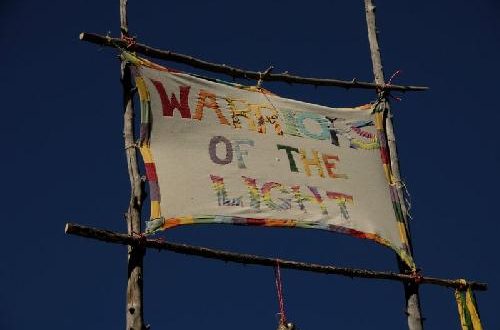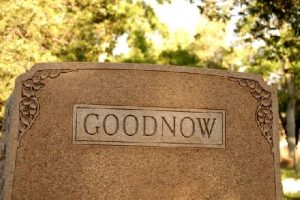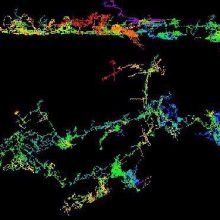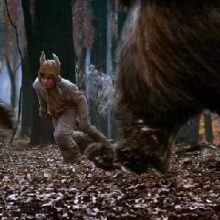A Warrior of the Light, a Warrior with a capital “W,” is one who efficiently serves life-affirming transpersonal aims. A warrior with a lower case “w” could be a mercenary, one who serves selfish aims, or one who serves transpersonal but anti-life aims — a Nazi SS officer, for example. Someone could have rippling muscles, be a potent martial artist, highly efficient, focused and determined and yet only be a warrior. Someone else could be confined to a wheel chair and yet be an exemplary Warrior.
In The Way of the Warrior I wrote:
“Whether in the most ordinary, mundane circumstances, or a catastrophic emergency, the Warrior strives to maintain vigilance, skillful intelligence and discriminating awareness. It is the Warrior’s duty to remain, as Don Juan put it, ‘humble and alert.’ In a world so filled with suffering and in need of help, anyone capable of conscious, effective actions has continual responsibility. Although it is worthwhile to be relaxed in the sense of ‘letting go’ — a state in which one is fluid and adaptable without unnecessary bodily tension or psychic rigidity and clinging — it is not good to be relaxed in the sense of a slouchy, careless attitude. There is a need to maintain conscious disciplines and to be prepared for anything.”
A Warrior is alertly attuned to the present moment. I sometimes call the Warrior’s stance “existential impeccability.” Many years ago, when I was first formulating this phrase, I wrote in my journal:
“The immature attitude toward transformation is to see impeccability as a sacrifice to gain a reward. It degrades the present into a sacrifice for an imaginary ‘transformed’ magical future. The immature approach turns all efforts into their opposite, light into dark. True impeccability is existential, it is done for its own sake, not in the expectation of anything. Only such a stance has the detachment from result to achieve the fluidity and adaptability to mean a lasting value. This type of impeccability is not ‘for’ transformation. It is in itself the revolutionary transformation you seek. Transformation occurs when you strive to give up the expectant attitude and replace it with a lasting effort to seek impeccability as an end in itself.”
Another way of saying this is that the Warrior is path-oriented, rather than goal-oriented. The Warrior is impeccably engaged with what the path is presenting him within the present moment, not disassociated from the moment and gazing at far-off goals.
No one expressed in words the Warrior stance better than hoaxer and trickster-genius Carlos Casteneda. Here are some of the jewel-like Warrior aphorisms Castaeneda attributed to Don Juan:
“The ordinary man views everything as either a blessing or a curse. The Warrior takes everything as a challenge.
There are always cubic centimeters of chance that power makes available to the Warrior. The Warrior’s art is to be perennially fluid in order to pluck them.
To be a Warrior means to be humble and alert.
A Warrior must be fluid and shift harmoniously with the world around him.
One needs the mood of a Warrior for every single act. Otherwise one becomes distorted and ugly. There is no power in a life that lacks this mood.
The Warrior performs even the most trivial of his tasks impeccably to store power.
The Warrior starts off with the certainty that his spirit is off balance. Then by living in full control and awareness, but without hurry or compulsion, he does his ultimate best to gain his balance.
A Warrior is never under siege. To be under siege implies that one has personal possessions that could be blockaded. A Warrior has nothing in the world except his impeccability and impeccability cannot be threatened.
Being a Warrior is not a simple matter of wishing to be one. It is rather an endless struggle that will go on to the last moments of our lives.
No one is born a Warrior; you must choose to make yourself one.
Impeccability can exist only in the present.
Impeccability is always available.
A Warrior should strive to meet any conceivable situation, the expected and the unexpected, with equal efficiency. To be perfect under perfect circumstances is to be a paper Warrior.”
Don Juan’s spin on being a Warrior is powerfully existential. Don Juan continually emphasizes the value of being aware of your own death. He encourages Carlos to experience death physically and directly as a shadowy presence standing on his left. Death is described as a powerful ally that has the particular virtue of absolute honesty. In an interview with Sam Keen Castaneda remarks,
“…Don Juan’s approach has a strange twist because it comes from the tradition in sorcery that death is a physical presence that can be felt and seen. One of the glosses in sorcery is: death stands to your left. Death is an impartial judge who will speak truth to you and give you accurate advice. After all, death is in no hurry. He will get you tomorrow or next week or in fifty years. It makes no difference to him. The moment you remember you must eventually die, you are cut right down to size.”
Awareness of our mortality makes us more alive in the moment. It also cuts through the trivial and superficial. As I’ve mentioned in a number of cards, a wise man once advised me, “Only do things that you will remember well on your deathbed.” Absolute honesty is a core characteristic of the Warrior, and the denial of death, the illusory belief that we can put things off, is the cardinal self-deception that keeps us from becoming Warriors. As Don Juan says, “Our greatest enemy is that we never believe what is happening to us.” and “There are no survivors on this planet.”
There is a strong relationship between being a Warrior and the practice of mindfulness meditation where you become alertly attuned to the present moment. Only by being in the Now can you effectively engage the world. The path of the Warrior makes you a more alive, aware and engaged presence in the world. One advantage of the engaged stance is that it boosts your vitality. In the Shambala Warrior tradition this is described as follows: “Being on line with Warrior energy creates a point of concentration and focus beyond physical fatigue and emotional mood swings. Correctly accessing the Warrior brings energy and clarity.” In the Shambhala tradition, invoking this heightened state of energy or “Chi” is referred to as “raising windhorse.” Using your will to take actions when laziness, fatigue or temptation tries to slow you down, allows you to generate this type of energy. In the classic Yoga Aphorisms of Pantajali, it is written that, “Energy is like a muscle, it grows stronger through being used.”
Chogyam Trungpa and Carlos Cateneda both describe being a Warrior as a continual journey in which one must earn Warriorship moment by moment. A Warrior is always vigilant and in some way is never “off duty.” Trungpa, who, like Casteneda was not always a model of an exemplary Warrior himself, describes this state of Warrior vigilance with great eloquence:
(Note: in some of the following quotes Trungpa refers to “the setting sun world.” This term describes the modern “wasteland” world — the toxic environment in which so many modern lives occur.)
“The important point to realize is that you are never off duty. You can never just relax, because the whole world needs help.
The Warrior never neglects his discipline or forgets it. His awareness and sensitivity are constantly extended. Even if a situation is very demanding or difficult, the Warrior never gives up. He always conducts himself well, with gentleness and warmth, to begin with, and he always maintains his loyalty to sentient beings who are trapped in the setting-sun world. The Warrior’s duty is to generate warmth and compassion for others. He does this with complete absence of laziness. His discipline and dedication are unwavering.
The Warrior is constantly reminded that he has to be on the spot, on the dot, because he is choosing to live in a world that does not give him the setting sun’s concept of rest.
Warriorship is a continual journey. To be a Warrior is to learn to be genuine in every moment of your life.”
Here are some other Warrior phrases and aphorisms:
“If not now, when? If not me, who?” — Jewish saying
“Grace under pressure.” — Hemingway’s definition of heroism
“But I will say this: the rule of no realm is mine, neither Gondor nor any other, great or small. But all worthy things that are in peril as the world now stands, those are my care. And for my part, I shall not wholly fail of my task, though Gondor should perish, if anything passes through this night that can still grow fair or bear fruit and flower again in the days to come. For I also am a steward.” — Gandalf In the Ring Trilogy by J.R.R. Tolkien
“To serve, to strive and not to yield.” — Outward Bound Motto
As an Outward Bound graduate I have long been impressed by their philosophy. Here’s a brief excerpt:
“The Chinese language contains much wisdom in its symbols. The two-part character “wel-ji” is equivalent to our word for crisis. One character means danger and the other opportunity. We in the Western world focus only upon the danger. Yet the Chinese know the word means opportunity as well. We can open many doors and enrich our lives simply by ceasing to focus only on our fears and by looking more at the creative possibilities for action and change that can arise from a state of fear, anxiety. Outward Bound proposes that we recondition our reflexes to find energy and enthusiasm in the stirrings of fear and stress.”
Finally, Akido master and philosopher George Leonard codified some Warrior principles in “The Modern Warrior: A Manifesto”:
“1. The Modern Warrior is not one who goes to war or kills people, but rather one who is dedicated to the creation of a more vivid peace.
2. The Modern Warrior honors the traditional Warrior virtues: loyalty, integrity, dignity, courtesy, courage, prudence and benevolence.
3. The Modern Warrior pursues self-mastery through will, patience, and diligent practice.
4. The Modern Warrior works to perfect himself or herself not so much as a means to achieving some external goal as for its own sake.
5. The Modern Warrior is willing to take calculated risks to realize his or her potential and further the general good.
6. The Modern Warrior is fully accountable for his or her actions.
7. The Modern Warrior seeks the inner freedom that comes from the study of aesthetics, culture, and the wisdom of the ages.
8. The Modern Warrior respects and values the human individual and the entire web of life on this planet. To serve others is of the highest good. To freely give and accept nourishment from life is the Warrior’s challenge.
9. The Modern Warrior reveres the spiritual realm that lies beyond appetites and appearances.
10. The Modern Warrior cherishes life and thus conducts his or her affairs in such a manner as to be prepared at every moment for death. In this light, he or she is able to view all complaints, regrets, and moods of melancholy as indulgences.
11. The Modern Warrior aims to achieve control and act with abandon.
12. The Modern Warrior realizes that being a Warrior doesn’t mean winning or even succeeding. It does mean putting your life on the line. It means risking and failing and risking again, as long as you live.”
For more on the Warrior path and philosophy see:
The Way of the Warrior
Warrior Quotes
Taoist Quotes
The Taoist Path
For an effective strategy for applying Warrior principles to your everyday life see:
Path-Finding/ Day-Mapping
 ZapOracle.com home to the free 720-card Zap Oracle
ZapOracle.com home to the free 720-card Zap Oracle






